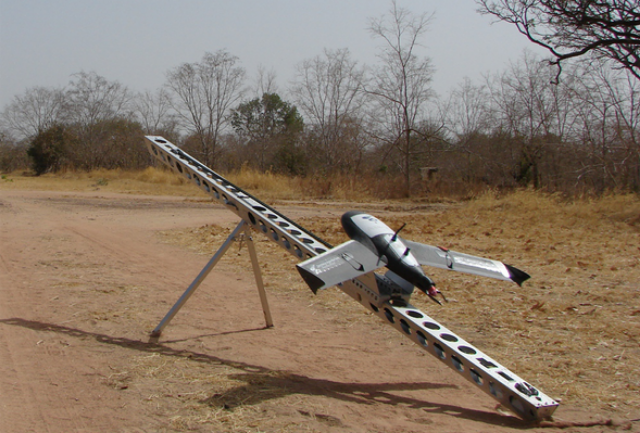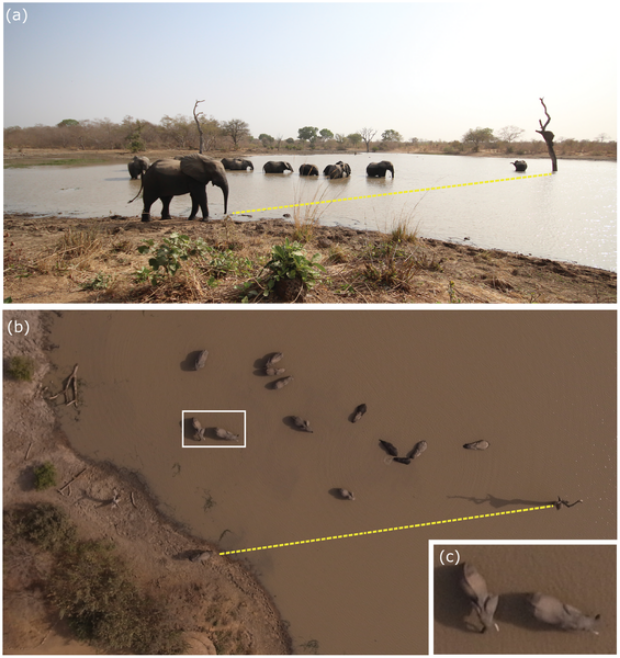 The use of a UAS (Unmanned Aircraft System) was tested to survey large mammals in the Nazinga Game Ranch in the south of Burkina Faso. The Gatewing ×100 equipped with a Ricoh GR III camera was used to test animal reaction as the UAS passed, and visibility on the images.
The use of a UAS (Unmanned Aircraft System) was tested to survey large mammals in the Nazinga Game Ranch in the south of Burkina Faso. The Gatewing ×100 equipped with a Ricoh GR III camera was used to test animal reaction as the UAS passed, and visibility on the images.
No reaction was recorded as the UAS passed at a height of 100 m. Observations, made on a set of more than 7000 images, revealed that only elephants (Loxodonta africana) were easily visible while medium and small sized mammals were not.
The easy observation of elephants allows experts to enumerate them on images acquired at a height of 100 m. We, therefore, implemented an aerial strip sample count along transects used for the annual wildlife foot count. A total of 34 elephants were recorded on 4 transects, each overflown twice. The elephant density was estimated at 2.47 elephants/km2 with a coefficient of variation (CV%) of 36.10%.
 The main drawback of our UAS was its low autonomy (45 min). Increased endurance of small UAS is required to replace manned aircraft survey of large areas (about 1000 km of transect per day vs 40 km for our UAS).
The main drawback of our UAS was its low autonomy (45 min). Increased endurance of small UAS is required to replace manned aircraft survey of large areas (about 1000 km of transect per day vs 40 km for our UAS).
The monitoring strategy should be adapted according to the sampling plan. Also, the UAS is as expensive as a second-hand light aircraft. However the logistic and flight implementation are easier, the running costs are lower and its use is safer. Technological evolution will make civil UAS more efficient, allowing them to compete with light aircraft for aerial wildlife surveys.
To see the complete report, click here.
Source: PLOS |One
